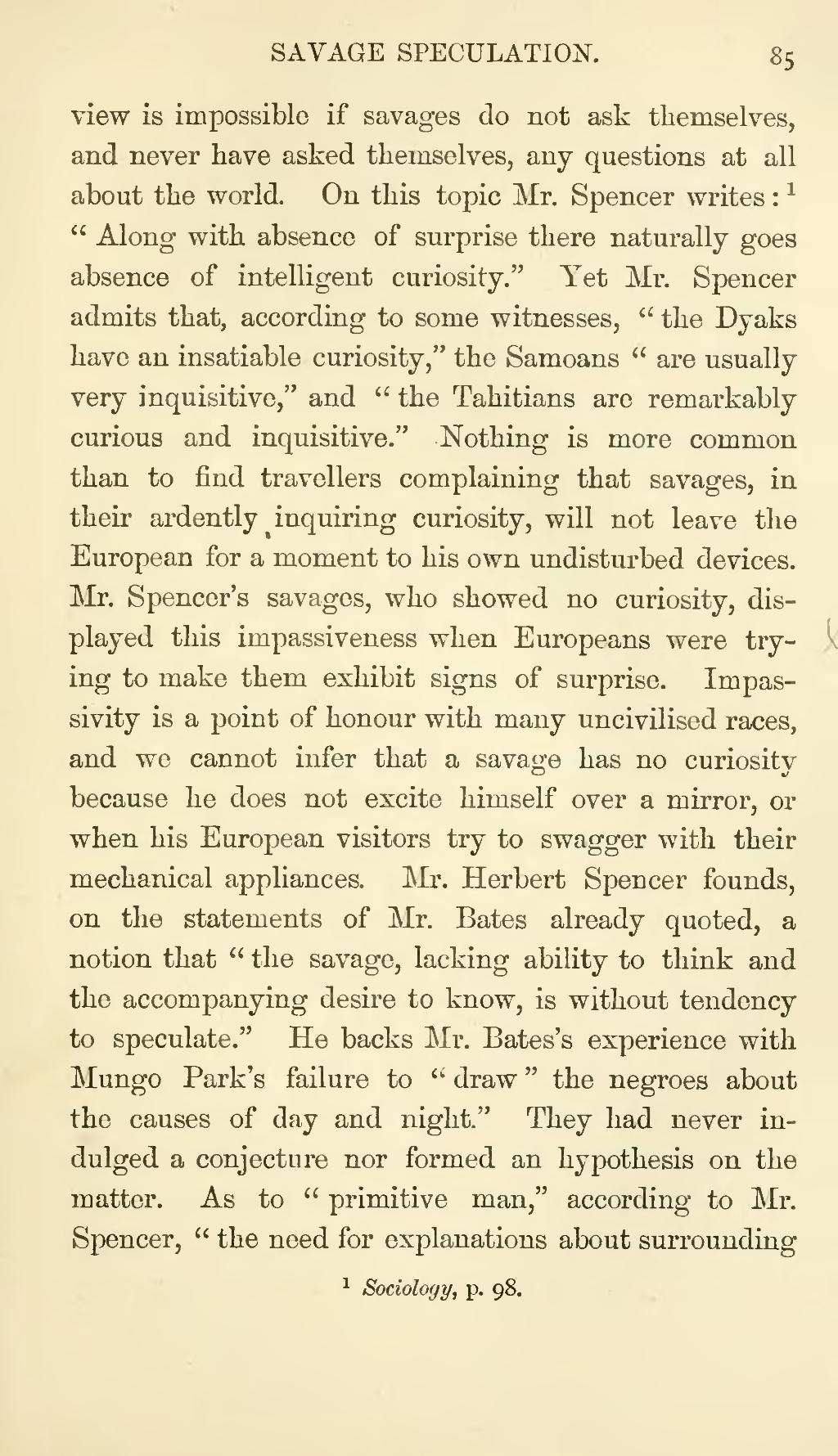view is impossible if savages do not ask themselves, and never have asked themselves, any questions at all about the world. On this topic Mr. Spencer writes:[1] "Along with absence of surprise there naturally goes absence of intelligent curiosity." Yet Mr. Spencer admits that, according to some witnesses, "the Dyaks have an insatiable curiosity," the Samoans "are usually very inquisitive," and "the Tahitians are remarkably curious and inquisitive." Nothing is more common than to find travellers complaining that savages, in their ardently inquiring curiosity, will not leave the European for a moment to his own undisturbed devices. Mr. Spencer's savages, who showed no curiosity, displayed this impassiveness when Europeans were trying to make them exhibit signs of surprise. Impassivity is a point of honour with many uncivilised races, and we cannot infer that a savage has no curiosity because he does not excite himself over a mirror, or when his European visitors try to swagger with their mechanical appliances. Mr. Herbert Spencer founds, on the statements of Mr. Bates already quoted, a notion that "the savage, lacking ability to think and the accompanying desire to know, is without tendency to speculate." He backs Mr. Bates's experience with Mungo Park's failure to "draw" the negroes about the causes of day and night. They had never indulged a conjecture nor formed an hypothesis on the matter. As to "primitive man," according to Mr. Spencer, "the need for explanations about surrounding
